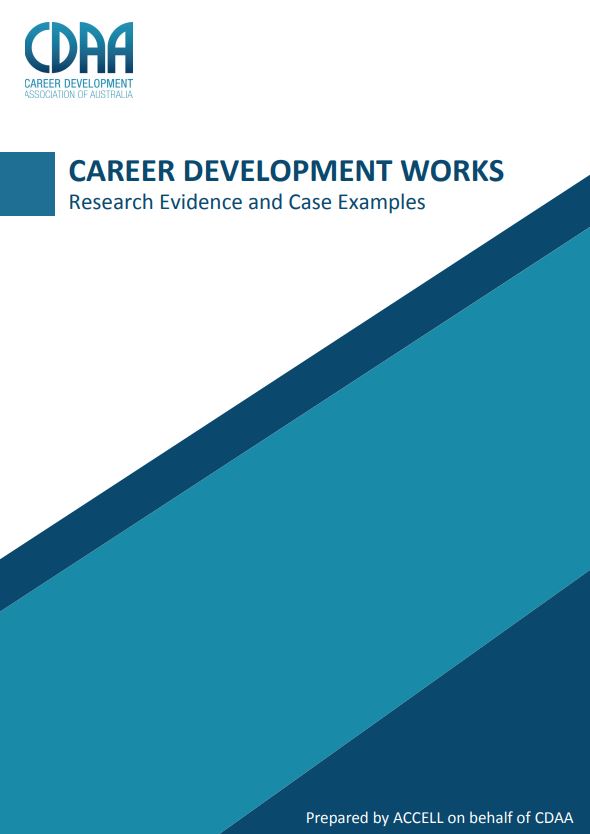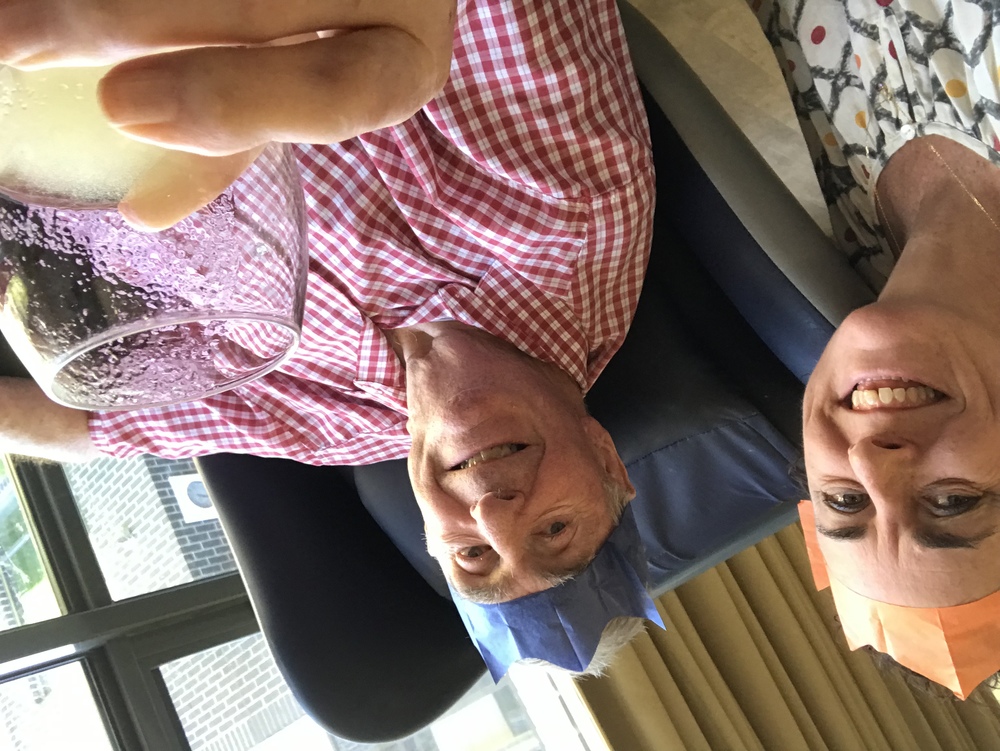The Career Development Works Report - The Key Recommendation and Where we go From Here
28/04/20
Kate Morton has most recently worked in Careers at the Queensland University of Technology and runs her own private practice KateM Consulting. She is a proud and active Professional Member of CDAA and was the recipient of our 2017 President's Award for Professional Leadership. Kate assisted with the research for the recently released Career Development Works report, commissioned by CDAA.

I was approached to assist with research compilation for the Career Development Works report, which was a big stretch goal for me and an opportunity that I would not normally gravitate towards. I now have so much more appreciation for research and the wonderful diverse work we do in career development.
My experience of undertaking academic research was as a child tip toeing around my (now ailing 80+) father, watching his frustration as he turned his words into valid academic Doctorate research. A mean feat for someone with limited school education, who had decided to get an undergraduate degree in his 40s and later his Doctorate, thanks to a supportive family and his love of learning.
CDAA commissioned ACCELL (Australian Collaboratory for Career Employment & Learning for Living) to investigate the effectiveness of and benefits from the investment in professional and qualified career development practices. The report draws upon two sources of evidence:
- The report summarises international evidence published in peer-reviewed research journals, and
- it presents case study examples of effective career development interventions in Australian contexts.
Peter McIlveen and Carolyn Alchin undertook the research while I conducted qualitative research interviews with our CDAA members. It was a great opportunity to hear our members share their fabulous stories of their practice. This is why I love our work: the true breadth of our practice; the range of great initiatives and recognising the opportunity for more accolades in our service delivery.
A key recommendation from the report is that practitioners should not only know the evidence but also use the evidence.
Use the infographics and this short summary of the key research in your practice to demonstrate the value of career development.
Job Insecurity
- The realities of job insecurity show that when workers are under threat, it has negative effects on the individual and the organisation. Building less job insecurity will increase trust in the organisation, the management and a positive emotional state.
Job Search
- Job search interventions are effective. Clients are 2.67 times more likely to secure a job with the support of a qualified career development practitioner.
- Encouraging proactivity, promoting goals setting and enlisting social support were highly rated interventions.
- There is good evidence that students can be taught how to express their employability skills rather than be passive in job search.
Career Development Interventions
- One or a variety of interventions (e.g. dialogue, workbooks, self-reporting) may be utilised to good effect. Personalised career interventions are the most effective and computer-based interventions alone have the least effect but their effect is enhanced by the presence of a practitioner.
- Individuals make better decisions when they are confident of their own sense of career identity, when they know they are ready to make decisions, they have the confidence to make decisions, and understand the supports and barriers that affect their decisions.
- Teachers and family play a crucial role in the career-decisions of students.
Meaningful Work
- Evidence shows that the most important work related outcomes are associated with meaningful work engagement, work commitment and job satisfaction.
- There is clear evidence of links among quality employment and mental health, unemployment and mental illness.
How can career practitioners build on this research?
Consistent messages from the practitioners I interviewed highlighted there is an opportunity to consider how we as practitioners are sharing our ‘best’ practice. How are we staying current in our practice and how are we building our capability to promote of our services?
These questions came from the interview discussions and provide an opportunity for you as a practitioner to ask yourself:
Best practice
- What is best practice? How do you demonstrate best practice?
- How do you evaluate your services? What processes do you have in place to demonstrate the impact of interventions?
- Are the interventions extensive enough to support students/clients explorations?
- Could your practice expand to consider a more broad range of effective methods of intervention?
Staying current in our professional practice
- When did you last review your practice?
- Is there an opportunity to be available and undertake more professional development?
- If career development practitioners are experts in job search interventions that target behaviours that result in getting
- a job, how confident are you to assist and direct job search interventions?
- How are you managing the information on the changing world of work?
Promoting the evidence of career development effectiveness
- Where are there opportunities for you as a practitioner to promote the evidence that career development practices work?
- How do we get to share all those fabulous initiatives and stories? Where do we find the space and forum to continue to hear those stories?
- Is there an opportunity to get involved in our organisation to influence policy makers?
- Are there examples of success you collect and where else can you publish those success stories?
- Who have you supported recently and showed your appreciation for the great work they do in the industry, education, the community or careers research?
As a result of this research, I have so much more appreciation for our Association. Also, the influence of my father, his determination and no doubt great contribution through his research and his time in the TAFE sector. While this Corona 19 isolation keeps him in aged care facility lock down (no doubt enjoying more cake), I know if I could sit with him, he would be very proud of yours and my contribution to building the capability of others. He would say only a few comprehendible words and one of those would be ‘marvellous’.
So let’s celebrate!

Photo: Kate Morton and Dr Richard James Morton - BEd (Melb); PhD (La Trobe). A muddled consent was given to use this photo.